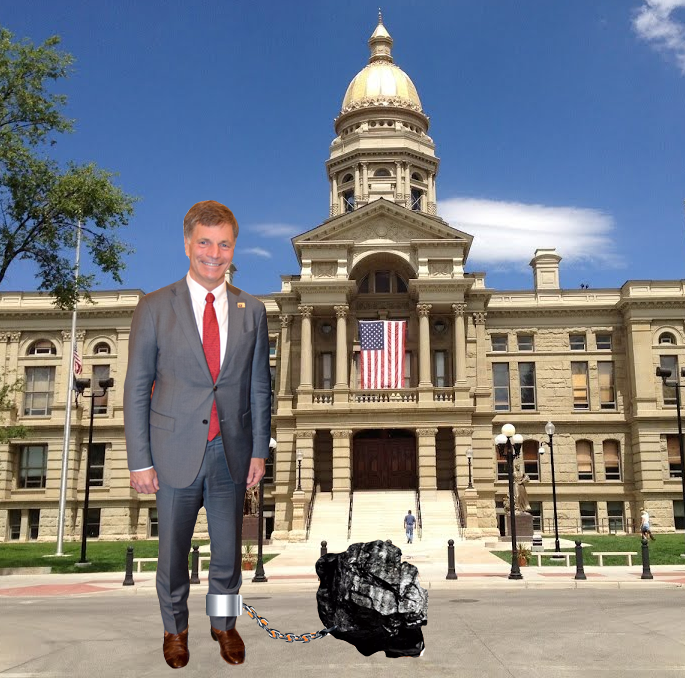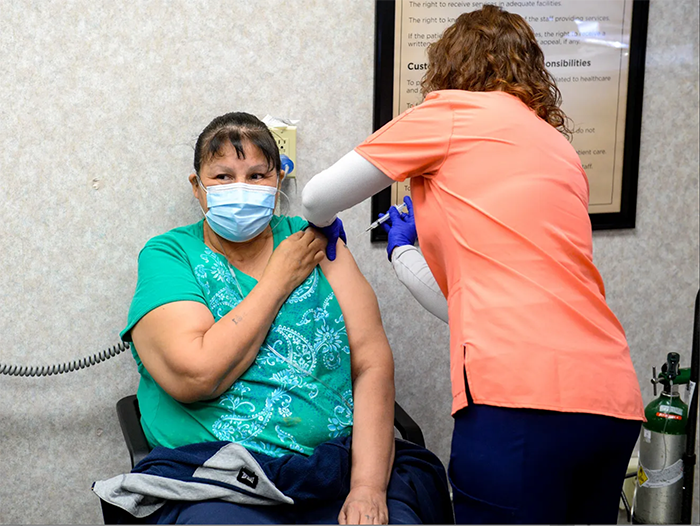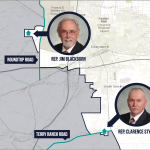Gordon’s proposed budget will keep Wyoming shackled to the fossil fuel industries
The Wyoming Legislature cut $430 million from the state’s budget last year in the name of “small government.”
Thirty percent of those cuts targeted the Department of Health, which distributes most of its funding to local hospitals and health centers across Wyoming.
So, cuts to the Department of Health mean cuts to healthcare in your community.
It’s no wonder that Wyoming is experiencing a mental healthcare crisis, facilities are closing, and hospitals and clinics across the state struggle with staffing shortages.
Gordon’s budget restores virtually none of last year’s cuts and puts $450 million into savings.
Lawmakers and others who supported last year’s sweeping budget cuts claimed that they were necessary because of the downturn in the fossil fuel industries. Tax revenue from oil, gas, and coal provides much of Wyoming’s budget, and the industries were in a deep slump from the COVID-19 pandemic.
But over the past year, revenue from the fossil fuel industries has dramatically increased. Meanwhile, Wyoming has received or will receive significant federal funding from the American Rescue Plan Act (ARPA) and the Infrastructure Investment and Jobs Act passed by Congress.
This increased revenue gives Wyoming lawmakers the chance to reverse their harmful cuts, fund public services that Wyoming residents need right now, and invest to help grow and diversify our state’s economy.
However, Governor Mark Gordon has instead proposed a 2023-24 budget that restores virtually none of last year’s cuts and puts $450 million into savings.
“Today’s good fortune is a reprieve, not a solution to our revenue stability,” Gordon said during a presentation of his proposed 2023 – 2024 budget. “I don’t think anyone in Wyoming is suffering under any misconception about [the Biden] administration, which has a single-mindedness about trying to remove fossil fuels.”
One might think that a half a billion dollars could fund things like education, infrastructure, and healthcare that would help Wyoming develop its economy beyond the fossil fuel industries. They could at least help stop some of the harm done by last year’s cuts.
Gordon wants to sock this money away into savings and miserly dole it out as revenues from the fossil fuel industries resume their decline.
Instead, Gordon wants to sock this money away into savings and miserly dole it out as revenues from the fossil fuel industries resume their decline. This is because he knows these industries are ultimately on their way out, and he lacks the spine to propose other ways to fund the state (i.e. taxes).
Wyoming needs new sources of revenue—other than the fossil fuel industries—if it wants to have things like quality schools, roads, and hospitals, and if we want to create jobs and grow our economy.
But Gordon insists we should continue to bank on fossil fuels and federal support while squeezing funding out of our savings, even if that means ignoring the immediate needs of Wyoming residents and neglecting to make investments to build a better future for our state.
Education or coal: Which is the future?
Most people agree that education is a key part of developing Wyoming’s economy beyond the fossil fuel industries.
But state lawmakers have cut the University of Wyoming’s budget by more than 25 percent in recent years, resulting in the elimination of entire departments and hundreds of positions.
The state’s eight community colleges haven’t fared any better. They have recently absorbed nearly $100 million in cuts of their own, shrinking their ability to train Wyoming students for high-paying blue-collar jobs.
This is in addition to the Legislature’s ongoing attempts to gut K-12 school funding.
Gordon’s proposed budget this year continues to short-change education. He does suggest restoring $7 million for the university and $4.5 million for community colleges—drops in the bucket compared to the cuts these institutions have experienced.
Meanwhile, the governor wants to set aside $100 million for energy projects like “carbon capture,” a fantasy-like technology that—allegedly, someday—would allow Wyoming to continue burning coal while not contributing to climate change.
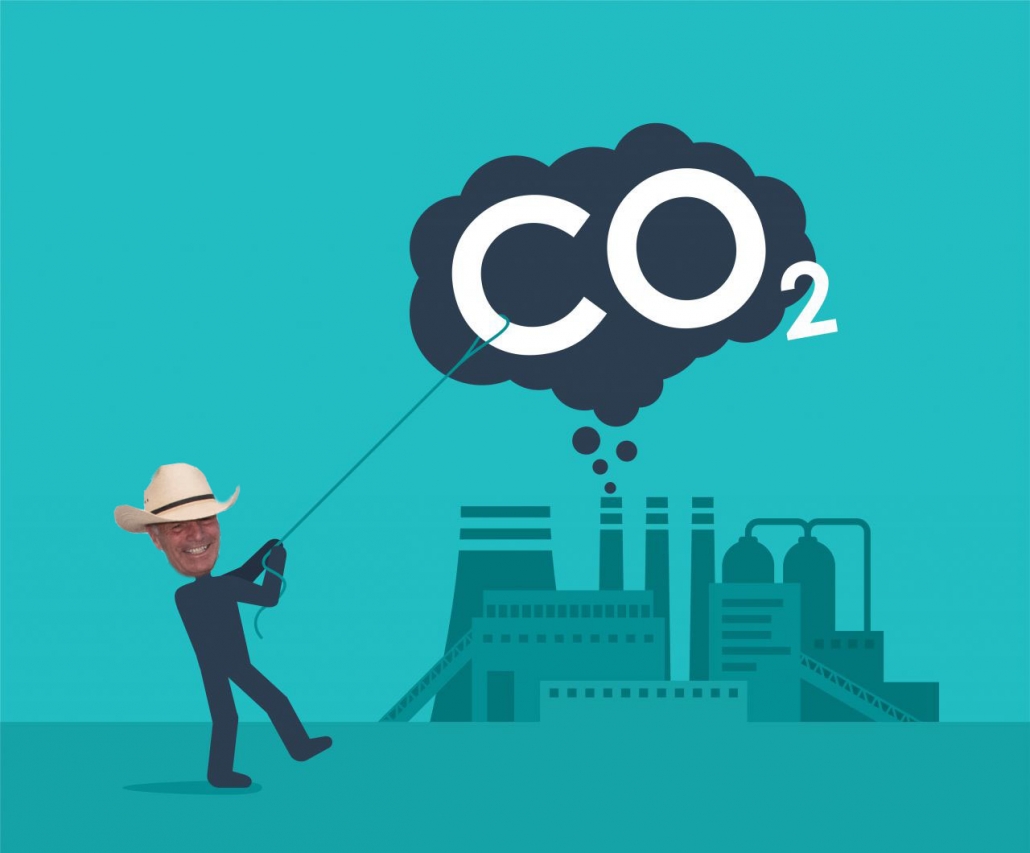
Wyoming politicians have already dumped tens of millions of dollars into carbon capture technology in an effort to prop up the coal industry. Unfortunately, no carbon capture project to date has been a success anywhere in the world. As natural gas remains cheaper, and as renewable energy prices drop, coal looks to become altogether obsolete.
Nevertheless, Gordon wants to invest even more money into coal, rather than using funds to support education or new industries that could actually provide jobs of the future.
Another option to help healthcare: Medicaid expansion
The Wyoming Legislature’s Joint Appropriations Committee has received Gordon’s proposed budget. The group will meet over the next several weeks to make adjustments before presenting it to the full Legislature in February.
Legislators will have the opportunity to make changes, reverse some of last year’s cuts, and invest in critical public services. Some members of the Appropriations Committee are already criticizing Gordon’s proposal, particularly for its lack of funding for healthcare.
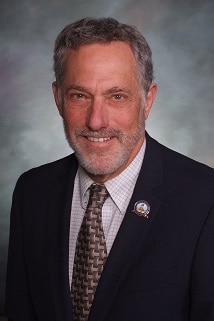
“I think that we need to be looking where we need to restore funding, especially in Health and Human Services and the Department of Health,” Rep. Andy Schwartz (D-Jackson) recently told WyoFile.
Lawmakers will also have the opportunity to invest in Wyoming’s healthcare industry and our economy by expanding Medicaid.
Medicaid expansion would address the immediate needs of tens of thousands of Wyoming residents who currently lack access to basic healthcare, and it would also help spur and develop Wyoming’s economy—particularly the healthcare industry.
Wyoming’s hospitals absorb more than $100 million a year in “uncompensated care” costs that result when they treat people—often in emergency rooms—who lack insurance and cannot afford to pay.
Hospitals pass these losses on to everyone else, driving up the cost of insurance premiums. The Wyoming Department of Health estimates customers on the Healthcare Marketplace could see a premium reduction of 10% if the state expands Medicaid.
Medicaid expansion would address the needs of residents who lack healthcare access, and it would also help develop Wyoming’s economy.
Because Medicaid expansion would bring tens of millions of dollars per year in federal funds into the state’s healthcare industry, it would create upwards of 2,000 jobs.
Additionally, each dollar a health clinic receives as a result of Medicaid expansion would turn over several times in local communities, stimulating their economies.
Last year, the Wyoming House advanced a bill to expand Medicaid for the first time in history, though it died in a Senate committee. Many lawmakers who had long opposed the program newly supported it, in part because under the American Rescue Plan Act, Wyoming would receive a $54 million incentive to expand Medicaid, while costs to the state would only amount to $20 million for the biennium—a net savings of $34 million.
This year, the Legislature’s Joint Revenue Committee has sponsored a similar bill to expand Medicaid. A robust grassroots movement in support of Medicaid expansion has grown in the past year, led by the Healthy Wyoming coalition. A survey by the American Cancer Society shows that the vast majority of Wyoming residents support the policy.
Even if the Legislature lacks the will to undo the worst parts of Gordon’s budget, they can still help the state by finally doing the right thing and expanding Medicaid.

